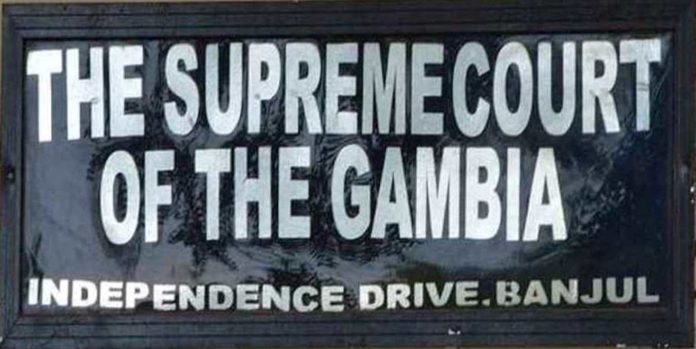It is important to take note that the Assembly did slice the budgets of other budgetary agencies with the expressed view that the budget deficit of the country needed to be reduced only to add 54.4 Million to the estimates which was never tabled by the executive.
It is incontrovertible that estimates of revenue and expenditure are connected with Appropriation Bills. An appropriation Bill is dependent on and determined by approved Estimates of revenue and expenditure.
The question now arises: Who prepares estimates?
Section 152 of the Constitution explains very clearly that the budgetary process starts with the preparation and laying of estimates before the National Assembly.
It reads:
(1) The President shall cause the Minister responsible for finance to prepare and lay before the National Assembly at least thirty days before the end of the financial year, estimates of the revenue and expenditure of The Gambia for the following financial year. The estimates shall include any estimates which, under this Constitution, are to be submitted directly to the President by the Chief Justice or any other authority for presentation by the President to the National Assembly.”
The estimates are so relevant to the Appropriation Bill that section 144 states the following with regards to the judiciary:
“(1) The Chief Justice shall submit the annual estimates of expenditure for the Judicature to the President for presentation to the National Assembly in accordance with this Constitution. The President shall cause the estimates to be placed before the National Assembly without amendment, but may attach to them his or her own comments and observations.”
It is therefore the executive that prepares estimates with the exception of those institutions excluded by the Constitution.
Does the National Assembly have any powers to introduce estimates of items that have not been submitted as part of its budgetary proposals? It does not.
Who then is to approve the estimates?
Section 152 A reads: “(1A) The National assembly shall, within fourteen days of the estimates being laid before it, give consideration to and approve the estimates.”
It is the National Assembly that approves the estimates.
If the National Assembly introduces an item and approves it, would that become legitimate by approving it? It was for the courts to decide.
What is the relation between an Appropriation Bill and an estimate?
Section 152 Subsection (2) reads:
“(3) When estimates of expenditure have been approved by the National Assembly, an Appropriation Bill shall be introduced in the National Assembly for the issue from the Consolidated Fund of the sums necessary to meet that expenditure (other than expenditure charged on the Consolidated Fund), under separate votes for the several services required and for the purposes specified therein.”
(3A) The National Assembly shall, within seven days of the introduction of the Appropriation Bill, give consideration to and pass the bill. “
If the National Assembly passes an Appropriation Bill with an item that was put in the estimates and approved by the National Assembly would that make it legal?
It is for the supreme court to decide. Why?
Section 127 reads:
(1) The Supreme Court shall have an exclusive original jurisdiction –
(a) for the interpretation or enforcement of any provision of this Constitution other than any provision of sections 18 to 33 or section 36(5) (which relate to fundamental rights and freedoms);”
The Supreme court has decided that when a process starts from a faulty step it can never stand on a legal foundation. The law has been made through interpretation. Those with legal minds should concede and move on to avoid recurrence. Parliamentary impunity is alien to democracy and good governance.



















